
The Enchanting Shores of Jimbaran, Bali
Jimbaran, a serene fishing village turned upscale resort destination, offers a unique blend of traditional Balinese culture and modern luxury. Nestled along the southwestern coast of Bali, Jimbaran is famed for its stunning beaches, crystal-clear waters, and mesmerizing sunsets. This picturesque neighborhood is a haven for those looking to escape the hustle and bustle, providing a tranquil atmosphere infused with local charm. One of the main attractions in Jimbaran is its pristine beach, known for its soft, golden sands and gentle waves. The beach is lined with a variety of seafood restaurants where visitors can enjoy freshly caught fish, prawns, and lobsters while watching the sun dip below the horizon. The dining experience here is unparalleled, with tables set right on the sand, allowing diners to savor their meals with their toes in the warm sand and the sound of the waves lapping the shore. In addition to its beaches, Jimbaran is also home to several luxury resorts and spas, offering world-class amenities and services. Visitors can indulge in relaxing spa treatments, yoga sessions, and other wellness activities, all set against the backdrop of lush tropical gardens and the Indian Ocean. For those interested in local culture, the nearby Jimbaran Fish Market provides an authentic glimpse into the daily lives of the local fishermen and a chance to sample some of the freshest seafood on the island. Jimbaran's strategic location also makes it an ideal base for exploring other parts of Bali. The iconic Uluwatu Temple, with its dramatic cliffside setting and famous Kecak dance performances, is just a short drive away. Additionally, the vibrant nightlife and shopping scenes of Kuta and Seminyak are easily accessible, offering a perfect balance between relaxation and adventure.
Local tips in Jimbaran
- Visit the Jimbaran Fish Market early in the morning to see the bustling activity and get the freshest seafood.
- Book a beachfront dinner at one of the seafood restaurants to enjoy a sunset meal with your feet in the sand.
- Consider staying at one of the luxury resorts for a full wellness and relaxation experience.
- Explore nearby attractions like the Uluwatu Temple for a taste of Bali's rich cultural heritage.
- Bring cash for local markets and small vendors, as not all places accept credit cards.
The Enchanting Shores of Jimbaran, Bali
Jimbaran, a serene fishing village turned upscale resort destination, offers a unique blend of traditional Balinese culture and modern luxury. Nestled along the southwestern coast of Bali, Jimbaran is famed for its stunning beaches, crystal-clear waters, and mesmerizing sunsets. This picturesque neighborhood is a haven for those looking to escape the hustle and bustle, providing a tranquil atmosphere infused with local charm. One of the main attractions in Jimbaran is its pristine beach, known for its soft, golden sands and gentle waves. The beach is lined with a variety of seafood restaurants where visitors can enjoy freshly caught fish, prawns, and lobsters while watching the sun dip below the horizon. The dining experience here is unparalleled, with tables set right on the sand, allowing diners to savor their meals with their toes in the warm sand and the sound of the waves lapping the shore. In addition to its beaches, Jimbaran is also home to several luxury resorts and spas, offering world-class amenities and services. Visitors can indulge in relaxing spa treatments, yoga sessions, and other wellness activities, all set against the backdrop of lush tropical gardens and the Indian Ocean. For those interested in local culture, the nearby Jimbaran Fish Market provides an authentic glimpse into the daily lives of the local fishermen and a chance to sample some of the freshest seafood on the island. Jimbaran's strategic location also makes it an ideal base for exploring other parts of Bali. The iconic Uluwatu Temple, with its dramatic cliffside setting and famous Kecak dance performances, is just a short drive away. Additionally, the vibrant nightlife and shopping scenes of Kuta and Seminyak are easily accessible, offering a perfect balance between relaxation and adventure.
Iconic landmarks you can’t miss
Garuda Wisnu Kencana Cultural Park
Discover the heart of Balinese culture at Garuda Wisnu Kencana Cultural Park, home to stunning sculptures, traditional performances, and breathtaking scenery.
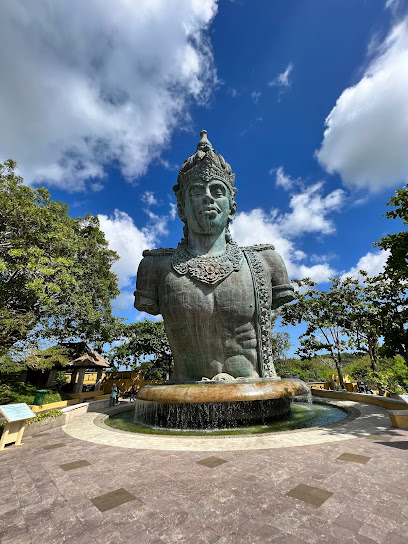
Sidewalk Jimbaran
Discover the best of shopping, dining, and entertainment at Sidewalk Jimbaran, Bali's vibrant shopping mall in Badung Regency.
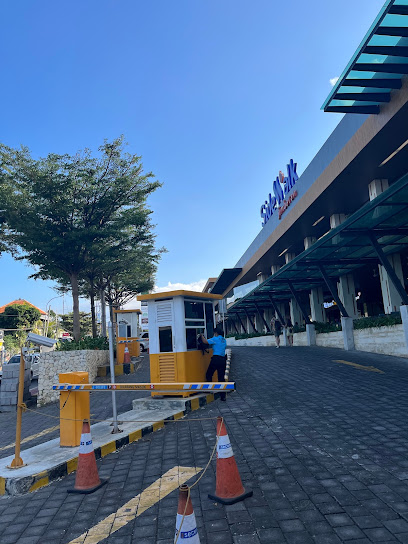
Jimbaran Beach
Discover the enchanting beauty of Jimbaran Beach, a tropical paradise in Bali known for its stunning sunsets, fresh seafood, and vibrant local culture.
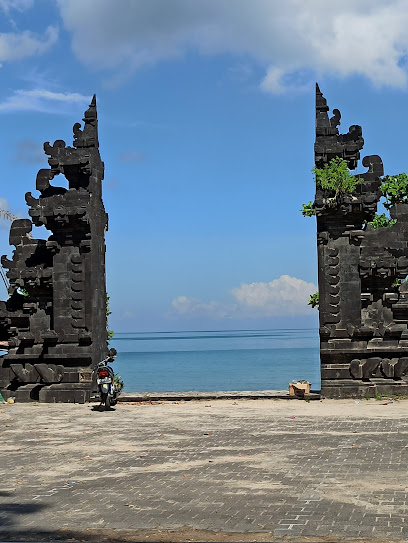
Balangan Beach
Discover the serene beauty of Balangan Beach in Jimbaran, Bali, where golden sands meet turquoise waters, perfect for relaxation and surfing.
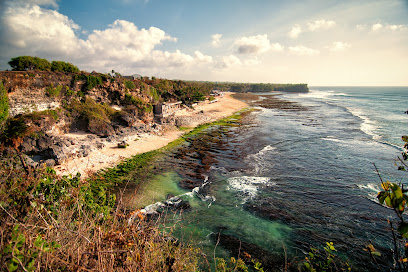
Pantai Muaya
Discover the enchanting beauty of Pantai Muaya, a serene beach in Jimbaran, Bali, perfect for relaxation, water sports, and savoring fresh seafood by the sea.
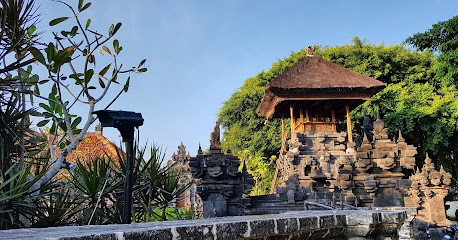
Pura Ulun Siwi Kayangan Jagat
Explore the serene beauty of Pura Ulun Siwi Kayangan Jagat, a breathtaking Hindu temple in Bali that offers tranquility and rich cultural experiences.
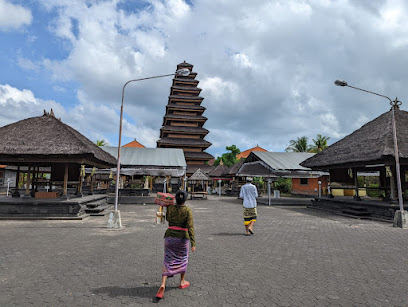
Pantai Jimbaran
Experience the enchanting beauty and local charm of Pantai Jimbaran, Bali's serene beach destination, perfect for relaxation and cultural exploration.
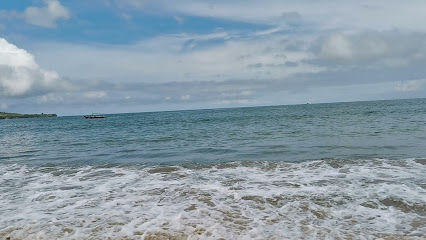
Sempaning beach
Discover the beauty of Sempaning Beach in Jimbaran, Bali—a serene public beach perfect for relaxation and local culinary delights.
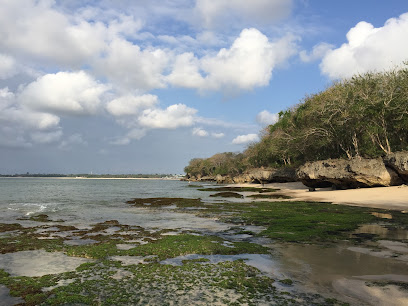
Balangan Beach Cliff
Discover the breathtaking beauty and serene atmosphere of Balangan Beach Cliff, a hidden gem in Bali perfect for relaxation and romantic getaways.
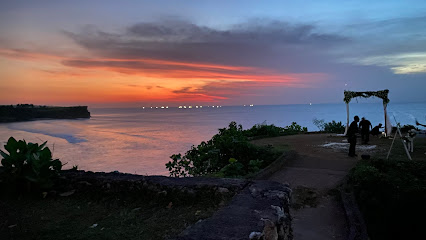
THE ULUWATU JIMBARAN
Experience luxury and tranquility at The Uluwatu Jimbaran, where stunning villas meet the beauty of Bali's landscape.

Jimbaran Bali
Discover tranquility at Jimbaran Park in Bali, a serene escape with lush greenery and close proximity to the pristine Jimbaran Beach.

giri bali tour
Explore the cultural heart of Bali at Giri Bali Tour, where adventure meets the island's rich traditions and stunning landscapes.

Unmissable attractions to see
Garuda Wisnu Kencana Cultural Park
Explore the stunning Garuda Wisnu Kencana Cultural Park, home to Bali's tallest statue and vibrant cultural performances, embodying Indonesia's rich heritage.
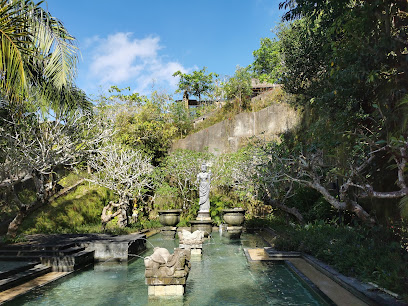
Balangan Beach
Discover the serene beauty of Balangan Beach, a hidden paradise in Bali perfect for sunbathing, surfing, and enjoying picturesque sunsets.
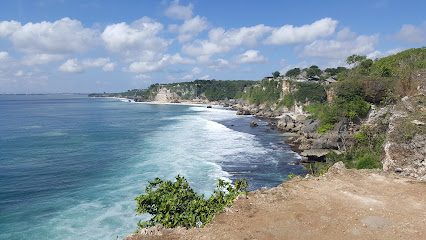
Kubu Beach
Discover Kubu Beach in Bali, a serene coastal paradise perfect for relaxation, adventure, and breathtaking sunsets amidst luxurious surroundings.
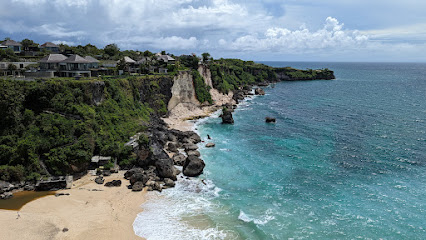
Honeymoon Beach
Experience the enchanting beauty of Honeymoon Beach in Bali, a serene retreat with stunning cliffs and crystal-clear waters perfect for relaxation.
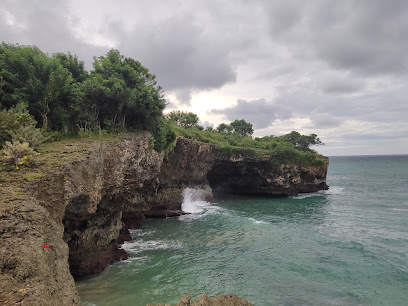
Tebing Pantai Balangan
Discover breathtaking views and serene beauty at Tebing Pantai Balangan, Bali's hidden cliff paradise, perfect for relaxation and adventure.
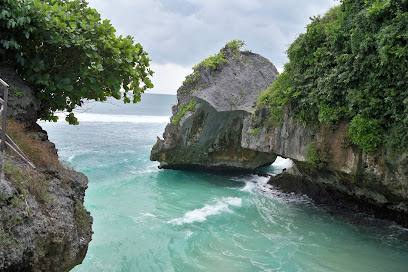
Pura Ulun Siwi Kayangan Jagat
Discover the serene beauty and spiritual depth of Pura Ulun Siwi Kayangan Jagat, a stunning Hindu temple in Bali's Jimbaran region.
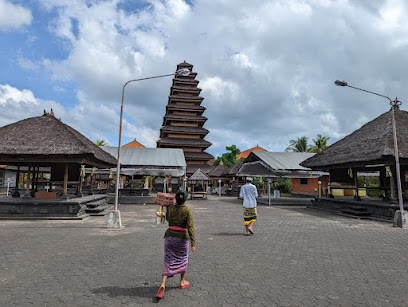
Pantai Jimbaran
Discover the serene beauty of Pantai Jimbaran, Bali's charming beach destination known for stunning sunsets and fresh seafood dining.
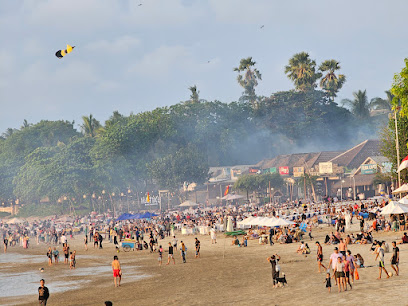
Plaza Garuda - GWK Cultural Park
Explore the grandeur of Plaza Garuda - GWK Cultural Park, home to Bali's iconic Garuda Wisnu Kencana statue and rich cultural experiences.
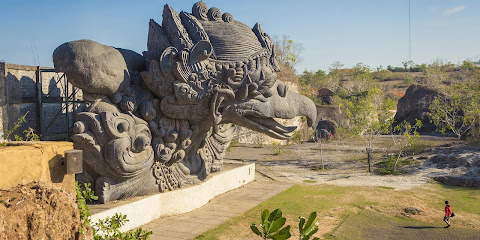
Pantai Mimpi Pondok Pemuda
Discover tranquility and stunning sunsets at Pantai Mimpi Pondok Pemuda in Jimbaran, Bali's serene beach paradise.
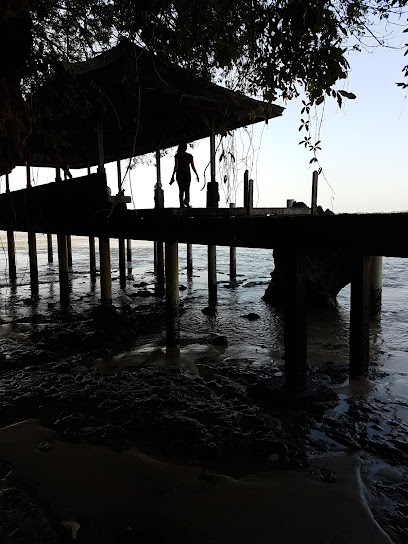
Plaza Wisnu
Explore the breathtaking Plaza Wisnu, a cultural gem in Bali, featuring the iconic Vishnu statue and serene gardens perfect for relaxation and photography.
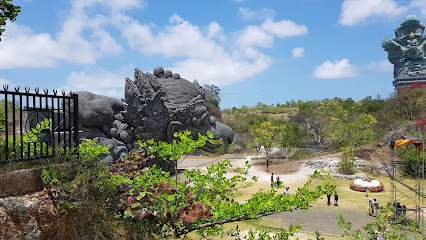
Essential places to dine
Menega Cafe
Experience exquisite seafood dining at Menega Cafe in Jimbaran Bay with stunning ocean views and authentic Balinese flavors.
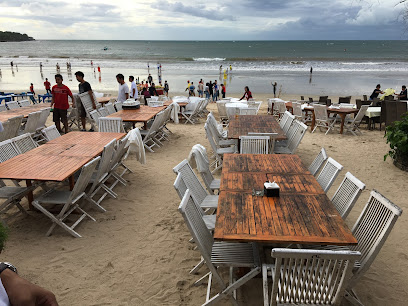
Cuca Restaurant
Discover exquisite tapas and delightful desserts at Cuca Restaurant in Jimbaran, Bali - an unforgettable culinary journey awaits.
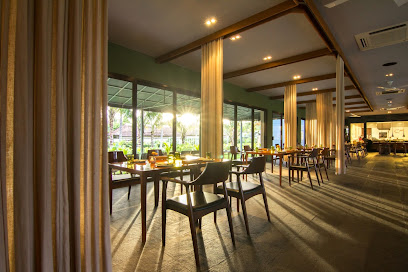
HATIKU Jimbaran
Discover HATIKU Jimbaran - where fresh seafood meets breathtaking views in Bali's coastal paradise.
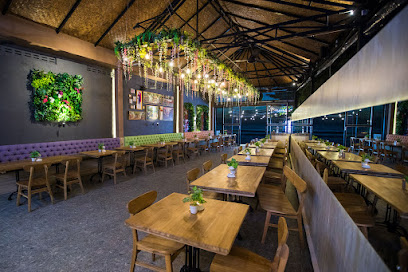
Sundara
Experience luxury dining at Sundara in Jimbaran Bay, where exquisite Asian cuisine meets breathtaking ocean views.
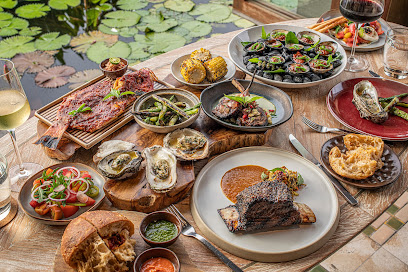
UNIQUE Rooftop Bar & Restaurant
Discover unparalleled views and vibrant flavors at UNIQUE Rooftop Bar & Restaurant in Jimbaran, Bali - where dining meets breathtaking scenery.
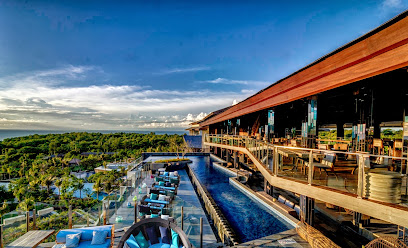
Made Bagus Cafe Jimbaran
Discover Made Bagus Cafe Jimbaran: A seafood haven offering fresh flavors and breathtaking ocean views in beautiful Bali.
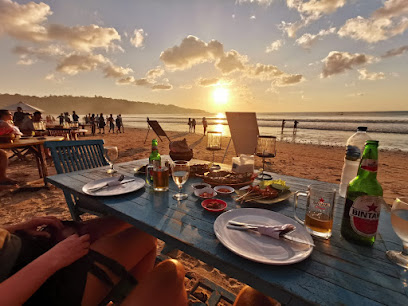
Kayumanis Resto Jimbaran
Experience authentic Indonesian cuisine at Kayumanis Resto Jimbaran with stunning ocean views and exceptional hospitality.
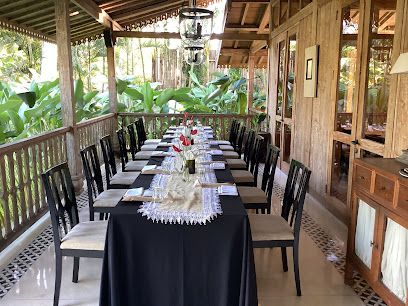
Secret Rooftop Bali by Happy Cow Bali - Jimbaran
Experience exquisite Asian fusion cuisine with stunning sunset views at Secret Rooftop Bali - Jimbaran's hidden culinary treasure.
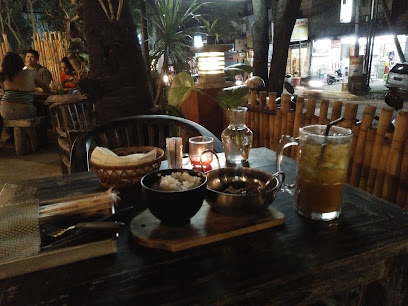
Opia Bali
Experience culinary excellence at Opia Bali, where fusion flavors meet stunning ocean views in the heart of Jimbaran.
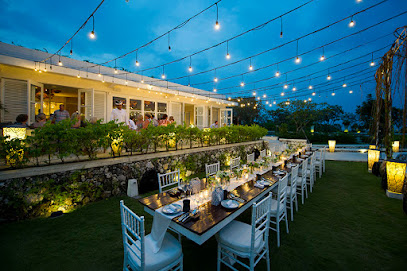
Mama Chew 360 Rooftop Jimbaran Bali by reservation only
Discover the exquisite flavors of Asia while enjoying breathtaking views at Mama Chew 360 Rooftop in Jimbaran, Bali.
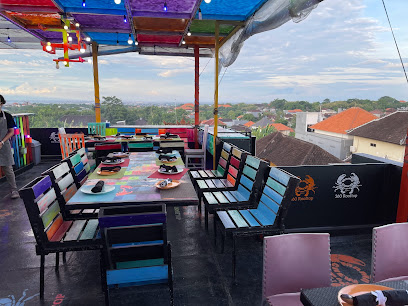
Markets, malls and hidden boutiques
Sidewalk Jimbaran
Discover the vibrant shopping and dining experience at Sidewalk Jimbaran in beautiful Bali, where culture meets modernity.
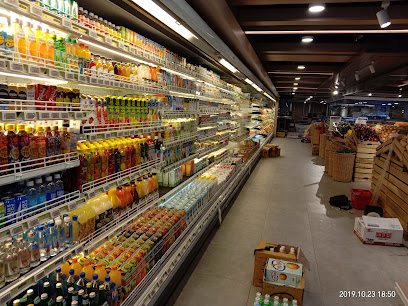
Samasta Lifestyle Village
Experience a vibrant blend of shopping, dining, and entertainment at Samasta Lifestyle Village in Jimbaran, Bali.
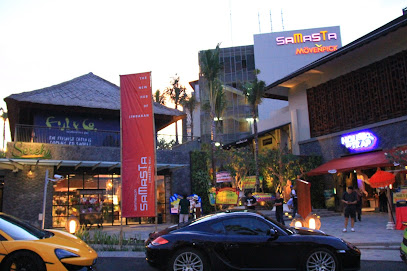
Gourmet Market Bali
Discover a culinary paradise at Gourmet Market Bali, where the vibrant flavors of the island come alive in a delightful shopping experience.
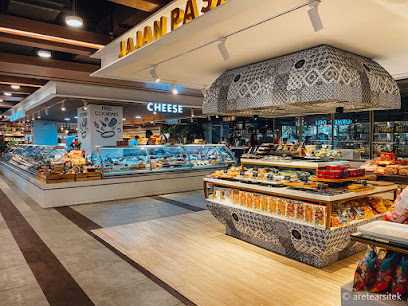
PT. Jenggala Keramik Bali
Discover exquisite handcrafted ceramics at PT. Jenggala Keramik Bali, a premier pottery destination celebrating Balinese artistry.
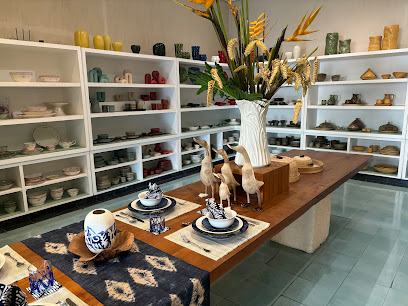
KRISNA Oleh-Oleh Khas Bali - Samasta Jimbaran
Discover the heart of Bali at Krisna Oleh-Oleh Khas Bali, your ultimate destination for unique souvenirs and local delicacies.
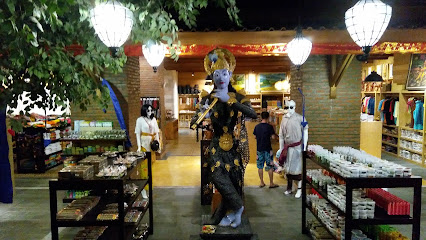
Cosala Art Shop
Explore Cosala Art Shop in Jimbaran, Bali, for unique gifts and authentic souvenirs that embody the spirit of the island.
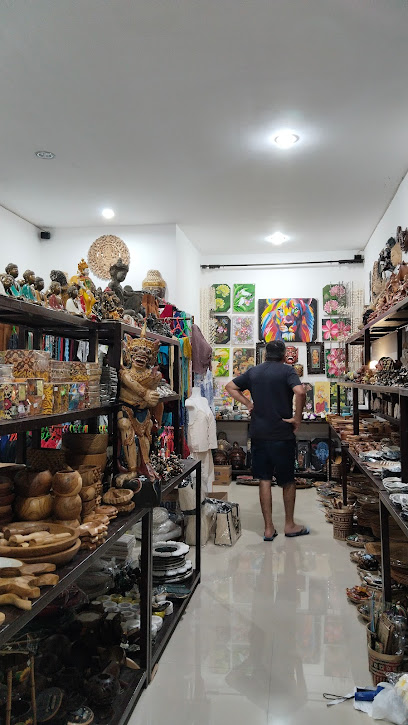
Me & Mom - Wahana
Explore the charm of Me & Mom - Wahana in Jimbaran, Bali, for unique gifts and convenient shipping services to take memories home.
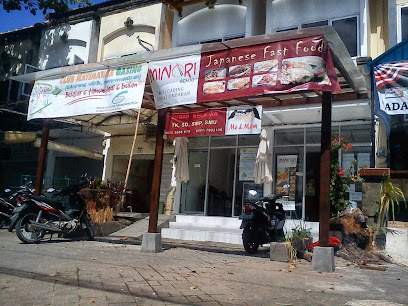
Out school store jimbaran
Discover unique fashion pieces at Out School Store in Jimbaran, where Balinese culture meets contemporary style.

Toko Crystal Jimbaran
Discover the vibrant shopping experience at Toko Crystal Jimbaran, where local culture meets modern retail in the heart of Bali.
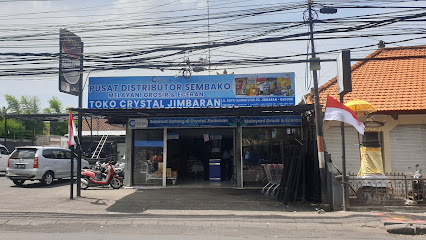
Jimbaran Arcade
Explore Jimbaran Arcade: A Shopping Haven in Bali with Unique Local Finds and Delicious Dining Options.
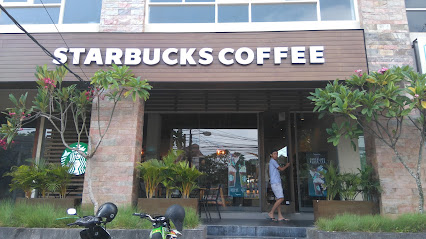
Essential bars & hidden hideouts
Rock Bar
Experience luxury and stunning sunsets at Rock Bar, Bali's premier oceanfront destination for exquisite cocktails and gourmet dining.
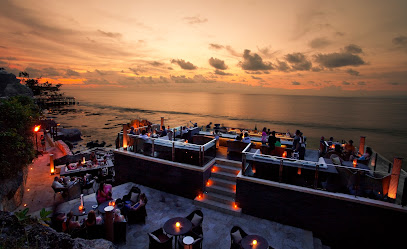
Sunset Beach Bar & Grill
Explore the vibrant flavors of Bali at Sunset Beach Bar & Grill, where exquisite cuisine meets stunning ocean views for a dining experience like no other.
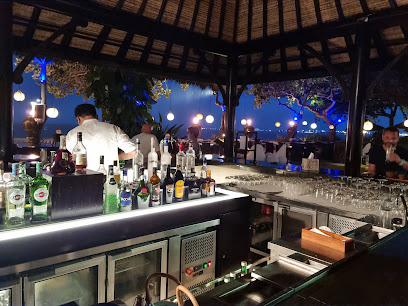
UNIQUE Rooftop Bar & Restaurant
Discover the vibrant flavors of Mexico at UNIQUE Rooftop Bar & Restaurant in Bali, with spectacular views and refreshing drinks for an unforgettable dining experience.
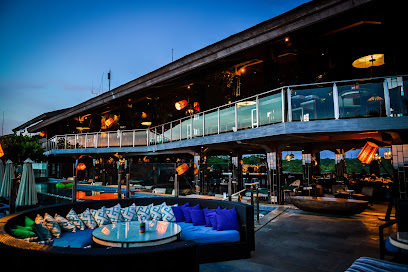
Boatrocks Bar
Experience the vibrant fusion of sports, art, and nightlife at Boatrocks Bar in Jimbaran, Bali, where unforgettable moments await.
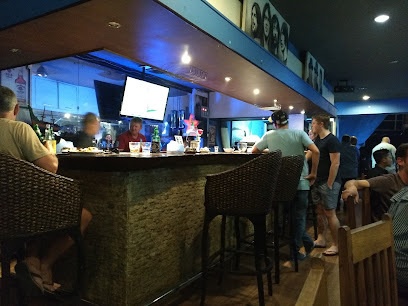
Smoqee Lounge & Sky Bar
Experience breathtaking views and vibrant nightlife at Smoqee Lounge & Sky Bar, the perfect blend of elegance and relaxation in Bali.
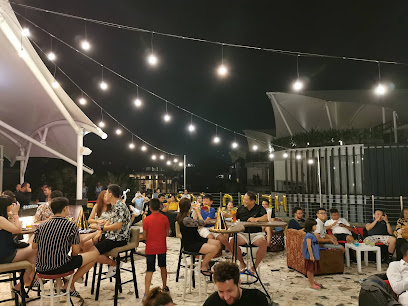
Forest Bar
Experience the tranquility of Forest Bar in Jimbaran, Bali, where lush surroundings meet refreshing drinks for a perfect escape.
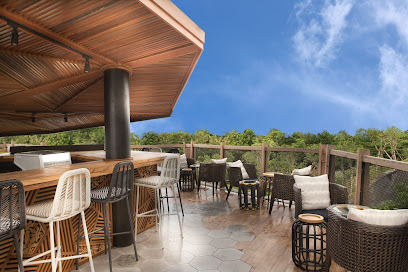
The Bay Bar and Grill
Experience the perfect blend of breathtaking ocean views and exquisite cuisine at The Bay Bar and Grill in Jimbaran, Bali.
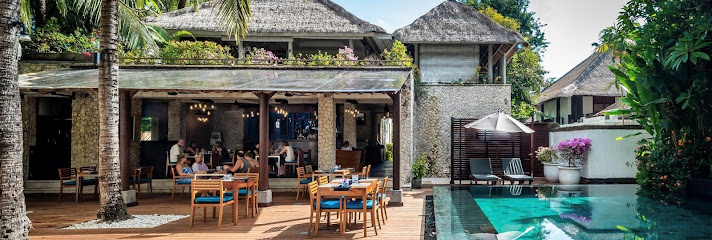
The Writers Bar Bali
Discover The Writers Bar Bali, a luxurious haven blending creativity and relaxation with exquisite cocktails amidst Bali's enchanting ambiance.
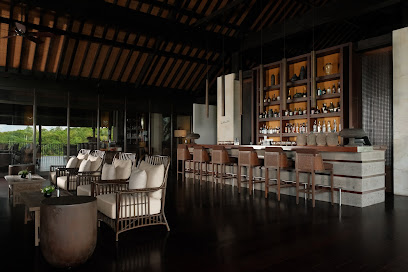
TELU Bar at Four Seasons Resort Bali at Jimbaran Bay
Discover the elegance of TELU Bar at Four Seasons Resort Bali, where stunning ocean views meet exquisite cocktails in a luxurious lounge setting.
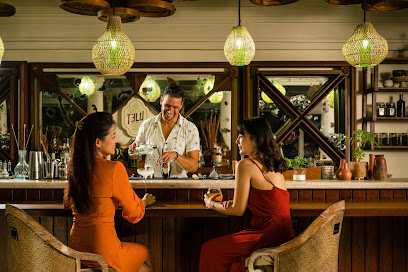
Smoqee Sports Bar & Lounge
Experience the vibrant nightlife of Bali at Smoqee Sports Bar & Lounge, where refreshing drinks and lively entertainment await.
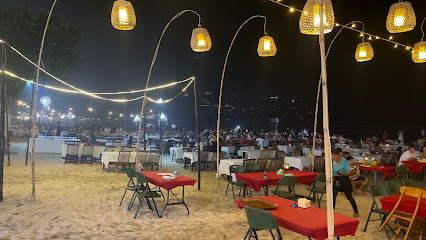
Local Phrases
-
- HelloHalo
[ha-loh] - GoodbyeSelamat tinggal
[seh-lah-maht ting-gahl] - YesYa
[yah] - NoTidak
[tee-dahk] - Please/You're welcomeTolong
[toh-long] - Thank youTerima kasih
[teh-ree-mah kah-see] - Excuse me/SorryMaaf
[mah-ahf] - How are you?Apa kabar?
[ah-pah kah-bahr] - Fine. And you?Baik. Dan kamu?
[bah-eek dahn kah-moo] - Do you speak English?Bisa bicara bahasa Inggris?
[bee-sah bee-chah-rah bah-hah-sah eeng-grees] - I don't understandSaya tidak mengerti
[sah-yah tee-dahk meng-ehr-tee]
- HelloHalo
-
- I'd like to see the menu, pleaseSaya ingin melihat menu, tolong
[sah-yah eeng-een meh-lee-aht meh-noo toh-long] - I don't eat meatSaya tidak makan daging
[sah-yah tee-dahk mah-kahn dah-eeng] - Cheers!Selamat minum!
[seh-lah-maht mee-noom] - I would like to pay, pleaseSaya ingin membayar, tolong
[sah-yah eeng-een mem-bah-yahr toh-long]
- I'd like to see the menu, pleaseSaya ingin melihat menu, tolong
-
- Help!Tolong!
[toh-long] - Go away!Pergi!
[pehr-gee] - Call the Police!Panggil polisi!
[pahng-geel poh-lee-see] - Call a doctor!Panggil dokter!
[pahng-geel dohk-tehr] - I'm lostSaya tersesat
[sah-yah tehr-seh-saht] - I'm illSaya sakit
[sah-yah sah-keet]
- Help!Tolong!
-
- I'd like to buy...Saya ingin membeli...
[sah-yah eeng-een mem-beh-lee] - I'm just lookingSaya hanya melihat
[sah-yah hahn-yah meh-lee-aht] - How much is it?Berapa harganya?
[beh-rah-pah hahr-gahn-yah] - That's too expensiveItu terlalu mahal
[ee-too teh-rah-lah mah-hahl] - Can you lower the price?Bisa turunkan harganya?
[bee-sah too-roon-kahn hahr-gahn-yah]
- I'd like to buy...Saya ingin membeli...
-
- What time is it?Jam berapa sekarang?
[jahm beh-rah-pah seh-kah-rahng] - It's one o'clockSekarang pukul satu
[seh-kah-rahng poo-kool sah-too] - Half past (10)Setengah (sepuluh)
[seh-teng-ah (suh-poo-looh)] - MorningPagi
[pah-gee] - AfternoonSore
[soh-ray] - EveningMalam
[mah-lahm] - YesterdayKemarin
[keh-mah-reen] - TodayHari ini
[hah-ree ee-nee] - TomorrowBesok
[beh-sohk] - 1Satu
[sah-too] - 2Dua
[doo-ah] - 3Tiga
[tee-gah] - 4Empat
[em-paht] - 5Lima
[lee-mah] - 6Enam
[eh-nahm] - 7Tujuh
[too-joo] - 8Delapan
[deh-lah-pahn] - 9Sembilan
[sehm-bee-lahn] - 10Sepuluh
[suh-poo-looh]
- What time is it?Jam berapa sekarang?
-
- Where's a/the...?Dimana...
[dee-mah-nah] - What's the address?Berapa alamatnya?
[beh-rah-pah ah-lah-maht-nyah] - Can you show me (on the map)?Bisa tunjukkan pada saya (di peta)?
[bee-sah toon-jook-kahn pah-dah sah-yah (dee peh-tah)] - When's the next (bus)?Kapan bus berikutnya?
[kah-pahn boos beh-ree-koot-nyah] - A ticket (to ....)Tiket (ke ....)
[tee-keht (keh ....)]
- Where's a/the...?Dimana...
History of Jimbaran
-
Jimbaran's history as a fishing village dates back centuries, with local fishermen relying on the abundant marine resources of the Indian Ocean. The village's strategic coastal location allowed for vibrant fishing activities, forming the backbone of the local economy and culture. The traditional fishermen's lifestyle remains evident in the daily routines and local seafood markets.
-
During the 19th century, Jimbaran became a significant point for trade and commerce, particularly under Dutch colonial rule. The colonial period saw infrastructure development, including ports, which facilitated the export of Bali's goods. Jimbaran's role in trade helped establish it as a vital economic hub in the region, enhancing its cultural exchange with other parts of Indonesia and beyond.
-
Jimbaran is renowned for its seafood restaurants, which have become a hallmark of its cultural identity. The tradition of dining on grilled seafood by the beach has its roots in the local fishing culture, where freshly caught fish is prepared in traditional Balinese style. This culinary practice attracts both locals and tourists, promoting Jimbaran as a culinary destination.
-
The late 20th century marked the beginning of significant tourism development in Jimbaran, transforming it from a quiet fishing village into a popular tourist destination. With the establishment of luxury resorts and beachfront properties, Jimbaran has become known for its stunning sunsets and upscale dining experiences, blending traditional Balinese culture with modern hospitality.
-
Jimbaran hosts various cultural festivals and ceremonies, reflecting the rich Balinese Hindu traditions. Events such as the Ngaben (cremation ceremony) and traditional dance performances showcase the vibrant local culture. These festivals not only preserve Jimbaran's heritage but also attract visitors eager to experience the authentic Balinese way of life.
Jimbaran Essentials
-
Jimbaran is located approximately 10 kilometers south of Ngurah Rai International Airport (DPS), making it easily accessible for travelers. From the airport, you can take a taxi, which takes about 15-20 minutes. Alternatively, if you are coming from popular areas like Kuta or Seminyak, you can hire a private car or use ride-hailing apps like Gojek or Grab, which are widely used in Bali.
-
Jimbaran is a compact area, and many attractions can be reached on foot. However, for longer distances, renting a scooter or bicycle is a popular option. There are also taxis and ride-hailing services available. Be cautious when riding scooters, as traffic can be chaotic. Public buses are infrequent, so they are not a reliable option for tourists.
-
Jimbaran is generally safe for tourists, but standard precautions should be taken. Avoid walking alone late at night, especially on deserted beaches. Petty crimes, such as pickpocketing, can occur in crowded areas. Areas around the traditional fish market can be busy, so keep an eye on your belongings. Overall, it’s advisable to stay vigilant and trust your instincts.
-
In case of an emergency, dial 112 for police assistance or 118 for fire. Local hospitals and clinics are available, with BIMC Hospital being a reputable option for tourists. It is recommended to have travel insurance that covers emergencies. For minor medical needs, pharmacies can be found throughout Jimbaran.
-
Fashion: Do wear light, breathable clothing suitable for the tropical climate. When visiting religious sites, cover your shoulders and knees. Religion: Do respect local customs, especially during ceremonies. Don’t disturb local worshippers. Public Transport: Do use ride-hailing apps for convenience. Don’t haggle excessively with taxi drivers. Greetings: Do greet with a smile and a nod. Avoid excessive physical contact. Eating & Drinking: Do try local seafood at the beachside cafes. Don’t drink tap water; opt for bottled water instead.
-
To experience Jimbaran like a local, visit the traditional fish market early in the morning to see the catch of the day. Enjoy a beachside dinner at one of the many seafood restaurants, where you can choose your fresh seafood and have it grilled to perfection. Take part in a cooking class to learn about Balinese cuisine. Engage with local vendors at the markets and be open to trying street food for an authentic experience.
Nearby Cities to Jimbaran
-
Things To Do in Surabaya
-
Things To Do in Yogyakarta
-
Things To Do in Semarang
-
Things To Do in Makassar
-
Things To Do in Bandung
-
Things To Do in Balikpapan
-
Things To Do in Jakarta
-
Things To Do in Settlement
-
Things To Do in Poon Saan
-
Things To Do in Flying Fish Cove
-
Things To Do in Drumsite
-
Things To Do in Greta Beach
-
Things To Do in Suai
-
Things To Do in Bobonaro
-
Things To Do in Ermera











